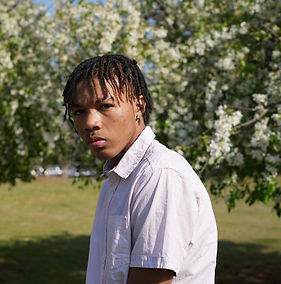The Challenge
Black children make up 5.9% of the population in the UK. In recent years there has been significant interest in the question of ethnic disproportionality across the Justice systems for England and Wales. Educational achievement is also a concern where African Caribbean children lag behind in comparison to their peers .
Evidence shows that self-worth is lower in black youth than in other ethnicities. We also know that low self-esteem is a key criminogenic factor as well as a consideration in the mental health and well-being of children, which can impact their ability to thrive.
The shocking issue of disproportionality is consistently raised but the issue remains. Realising the ldisturbing reality and the need for intervention, RockeInsights Social Enterprise (RiSE) was born to help address these issues, ensuring black children realise their full potential through the discovery of identity.

In England and Wales, the stark challenges faced by children and Black children specifically, demand our immediate attention. The statistics paint a worrying picture underscoring the pressing need for our mission to bring about change.
2021 The Chair of the Youth Justice Board (YJB), Keith Fraser states: ‘ I have ensured that one of our strategic objectives is to address over-representation within the youth justice system’.
David Lammy the prominent labour MP, within his review in 2017, considered the youth justice system his ‘biggest concern’, also focussing on the disproportionality . The proportions of Black, Asian and Minority Ethnic children in Custody were 41%, however as of August 2020 it had increased to 52%.
The YJB’s report ‘exploring racial disparity: how it affects children in their early years and within the youth justice system’ identified that custody rates for both remand and sentence remain disproportional, particularly for Black children. We therefore felt it was incumbent to understand…’ Fraser goes on to state : ‘… we now know that once demographic and offence-related factors were taken into account, disproportionality in some court sentence outcomes persisted for Black children but not for other minority ethnic groups.
RockeInsights is about improving outcomes for black & mixed heritage children and young people in our communities.
The Disparities continues :
Evidence shows that self-worth is lower in black youth than in other ethnicities. This is outlined in the Youth Justice Board’s (YJB) ‘Exploring the needs of young Black and Minority Ethnic offenders and the provision of targeted interventions'. We also know that low self-esteem is a key criminogenic factor as well as a consideration in the mental health and well-being of children, which can impact their ability to thrive.
Educational achievement is also a concern where in many instances African Caribbean children lag behind in comparison to their peers .
A Wider Impact:
The repercussions ripple throughout society. Families, schools, public services, and communities all bear the weight of this injustice. To add to the gravity of the situation, it costs on average a staggering £140,000 per annum to keep a young person confined within a young offender's institution.
The statistics are not just numbers; they reflect the complexity of the situation, with communities, academics and successive governments, searching for solutions to the problematic landscape.
Our programme is designed to specifically improve outcomes for black and mixed-heritage children in our communities.

